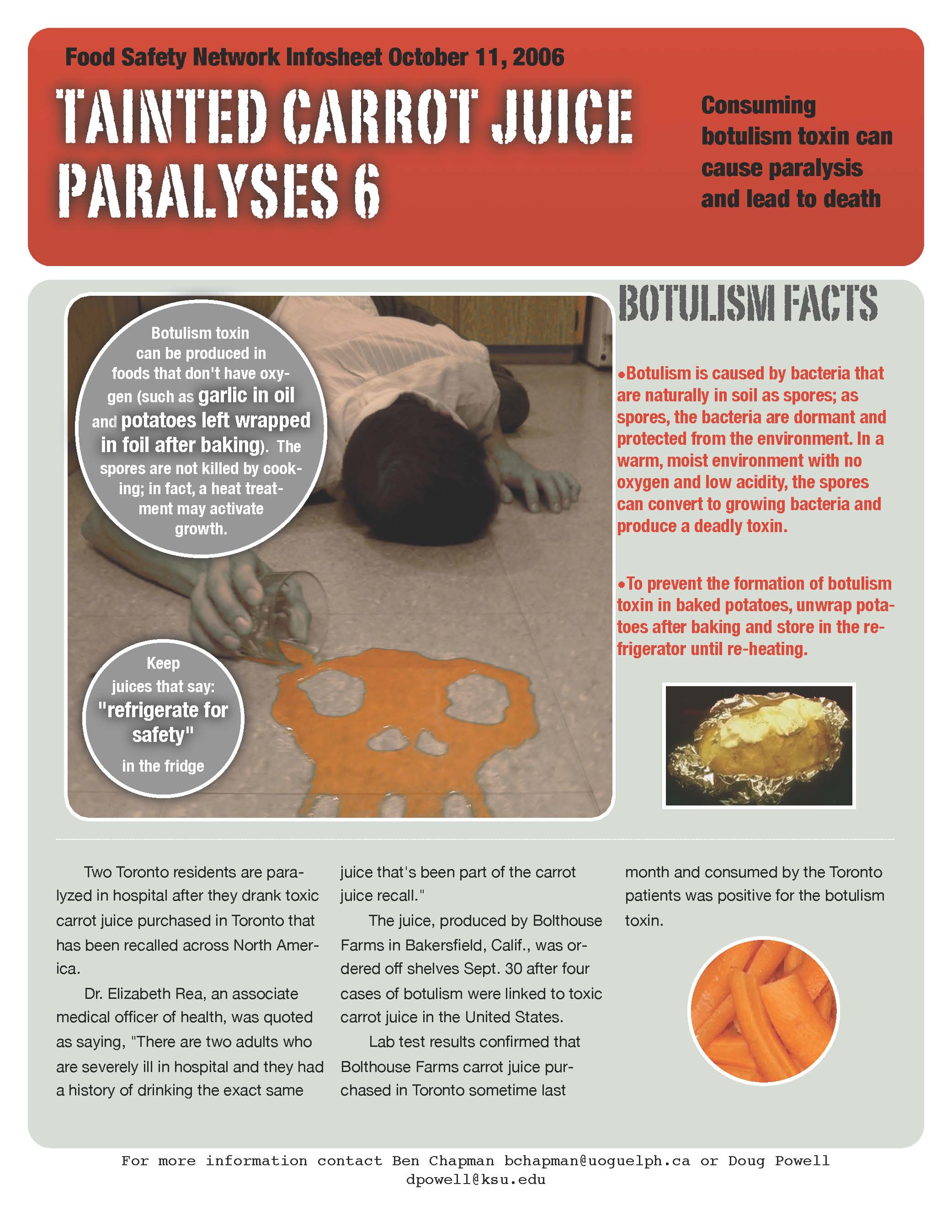On Days of Our Lives today, Victor Kiriakis gave his opinion about Chloe Lane, “Hell, botulism is better than being married to her.” In food safety terms, that’s a very low blow.
.jpg) Botulinum is a deadly toxin that comes from bacteria in soil and grows in warm, moist environments with no oxygen and low acidity. For example, it can grow on a baked potato wrapped in foil and left out on the counter. There have also been cases of poisoning in carrot juice, home-canned green beans, and enchiladas in France.
Botulinum is a deadly toxin that comes from bacteria in soil and grows in warm, moist environments with no oxygen and low acidity. For example, it can grow on a baked potato wrapped in foil and left out on the counter. There have also been cases of poisoning in carrot juice, home-canned green beans, and enchiladas in France.
Botulism can cause serious complications such as paralysis and death.
Common symptoms include difficulty swallowing or speaking, facial weakness, double vision, trouble breathing, nausea, vomiting, abdominal pain and paralysis.
In infants, symptoms include constipation followed by "poor feeding, lethargy, weakness, pooled oral secretions, and wail or altered cry. Loss of head control is striking."
 If having botulism is better than being married to Chloe, then Lucas better hope Victor, Kate, Sammy or even Daniel will ruin that wedding (you can vote online at nbc.com).
If having botulism is better than being married to Chloe, then Lucas better hope Victor, Kate, Sammy or even Daniel will ruin that wedding (you can vote online at nbc.com).
And p.s., Victor Kiriakis is played by John Aniston, the father of Jennifer Aniston IRL.

 The Norwegian Food Safety Authority
The Norwegian Food Safety Authority

 I didn’t know French people had discovered enchiladas, and much less those you can buy in the grocery store. That’s one food I often crave when traveling for an extended period in France, and it’s my standby order at my first visit to any Mexican restaurant. But obviously someone in France is buying enchiladas because two people are now reported in serious but stable condition in a French hospital after eating Companeros brand chicken enchiladas. Several of the
I didn’t know French people had discovered enchiladas, and much less those you can buy in the grocery store. That’s one food I often crave when traveling for an extended period in France, and it’s my standby order at my first visit to any Mexican restaurant. But obviously someone in France is buying enchiladas because two people are now reported in serious but stable condition in a French hospital after eating Companeros brand chicken enchiladas. Several of the .jpg)
.jpg) The botulism outbreak, which would eventually sicken eight and lead to a recall of tens of millions of cans of food, was the first in a U.S.-made canned food in 33 years.
The botulism outbreak, which would eventually sicken eight and lead to a recall of tens of millions of cans of food, was the first in a U.S.-made canned food in 33 years..jpg)
